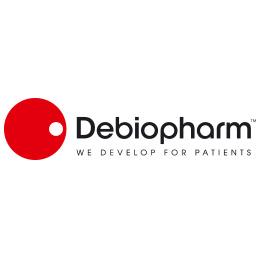Planting seeds of success: A new early-stage fund in Cancer Tech

Debiopharm Innovation Fund, the Swiss biopharma’s strategic investing arm managing a $150 million fund, is looking to get involved earlier in the investment process with the launch of a new seed funding activity.
“We believe that in the midst of every crisis lies great opportunity,” said Marc Cikes, managing director of Debiopharm Innovation Fund. “We see a new generation of innovators emerging, who are facing a tough market environment. By investing earlier at more reasonable valuations, we can serve as a stepping-stone to successful Series A funding for the most promising Seed start-ups in need of capital and strategic guidance.”
The fund has been investing since 2006 and specialising in digital health since 2017, funding a total of 25 companies, most often from their Series A onwards. However, the current environment of new technology and rapid change makes it more important than ever to invest in companies at the very beginning of their journey. With the new fund, the company plans to make up to 15 Seed investments per year.
“Investing at the Seed stage opens new horizons for us,” Cikes said. “It allows us to diversify our investments, participate in more opportunities with smaller ticket sizes, and stay at the forefront of the global innovation scene. This strategy positions us well for subsequent Series A financing, which remains the flagship activity of our fund.”
Debiopharm’s investment strategy
Just like Debiopharm’s existing investment apparatus, the seed vehicle will be tightly focused on a particular vision for the future of pharmaceutical innovation.
The fund will seek out companies that use data and technology to reimagine and re-invent pharma R&D and care pathways, especially in the oncology space. Cikes says there are three major pillars to the strategy.
“We believe that precision medicine starts with precision R&D, moving away from generic approaches to more personalised, biomarker-guided development,” he said. “We envision patient-centric clinical trials, with more patients able to access novel treatments earlier. Last, we imagine the emergence of AI-powered care, enabling earlier diagnosis, more precise prognosis, and truly individualised treatment pathways.”
Cikes says that, with seed funding in particular, the key is to do their homework and hedge their bets.
“We balance the higher risk profile of Seed investments by putting in smaller tickets at attractive valuations, and by running an efficient due diligence process that relies on the collective experience of the fund’s team and the experts we can tap into from our Pharma organisation,” he says.
Speaking of tapping into the pharma organisation, Cikes says that, as a strategic investor in the pharma space, Debiopharm brings some advantages to the table for its start-up partners.
“Because it is both a drug development company and a strategic investor, Debiopharm is uniquely positioned to spot and nurture innovative start-ups, readying them for the pharmaceutical industry’s needs,” he says. “Equally, investing in cutting-edge start-ups inspires future-proof innovation at Debiopharm and often leads to collaborations. By diversifying into seed investments, we now have a front seat to access the latest technological developments.”
And for the start-ups, there’s more to gain from the relationship than just money.
“We grant our start-ups access to Debiopharm's wealth of expertise,” Cikes continued. “We facilitate connections between start-ups and internal experts. This enables start-ups to test their hypotheses and build more fit-for-purpose solutions. Equally, we educate our internal teams to collaborate more effectively with start-ups by adopting a co-creation mindset, rather than expecting a turn-key solution.”
Disrupting the clinical trial space with AI
The first two start-ups named for the new seed fund are both involved in the AI space, and one is also working specifically in clinical trials. UK-based Neuroute is working on a no-code AI clinical development platform streamlining clinical trials.
“In the ever-evolving landscape of clinical trials, embracing AI, for us, goes beyond buzzwords. With Neuroute, we're melding traditional knowledge with state-of-the-art no-code AI solutions. Neuroute simplifies the complex process of clinical trials. From feasibility assessment to site selection and study design, we see a future where clinical research is smarter and more efficient. We're excited to be part of this journey," shared Investment Associate Cedric Odje, who is looking after the deal.
Founded in 2019, the company has already worked with Johnson & Johnson and the National Institute for Health Research.
“We are excited to partner with Debiopharm and redefine the landscape of clinical development with AI," Livia Lifes, co-founder and CEO at Neuroute, said in a statement. "We are on track to make monumental progress in developing AI for clinical trials, which will enable transformative medicines to be brought to patients more effectively and efficiently."
The other initial investment is in Tune Insight, a company that’s working more on the backend, developing a data collaboration platform that facilitates the training of AI models through secure, federated learning.
“We believe in the future of AI models that integrate multimodal data from various sources, which comes with inherent risks of data leakage that should be addressed,” said Nicolas Stalder, Senior Investment Associate in charge of the deal. “We saw Tune Insight as a one-of-a-kind federated learning ‘on steroids’ solution. Not only does it offer a privacy-preserving data collaboration platform, but it also adds cutting-edge data protection layers such as differential privacy and homomorphic encryption, without degrading the performance of the models.”
The company, which spun out of the EPFL Laboratory for Data Security, is excited to leverage this investment into a stronger presence in healthcare, where the need for its technology is great.
“Our latest seed round joined by Debiopharm will help us further develop our healthcare vertical, where we see a strong need for collaborations across data sets, which today often stay in silos,” said Juan Ramón Troncoso-Pastoriza, co-founder and CEO at Tune Insight. “The potential of predictive AI models for precision medicine is tremendous, and our solution can help train these data-hungry models without compromising data privacy and security.”
Looking to the future
Beyond hype and buzzwords, Cikes sees AI in pharma as essential to accelerate the field towards meeting its full potential for patients.
“While the human genome comprises 20,000-25,000 genes, currently, just over 800 disease-related molecular targets are targeted by available drugs,” he says. “Our understanding of the impact of genomics on diseases remains limited, as we’ve only scratched the surface. However, the growing complexity of genomic data, coupled with other omics and clinical information, demands more advanced analytical techniques. Machine learning holds the promise of uncovering fresh links between genomics and health conditions, paving the way for the development of more precise and effective treatments for diseases.”
These are solvable problems, and by investing in the right AI enterprises, Debiopharm believes it can help the whole industry move closer to those solutions.
“The process of developing drugs is time-consuming and expensive, typically spanning over 12 years and surpassing the billion-dollar mark in costs. Alarmingly, roughly 90% of drugs in development fail to secure regulatory approval, leaving just around 500 diseases with approved treatments. For two-thirds of diseases, effective treatments are still lacking,” Cikes said. “The pharmaceutical sector must pivot from its current trajectory, as it has not embraced engineering methods like simulation and modelling, which have proven pivotal in various other industries to iterate and innovate more quickly.”
More information on the Debiopharm Innovation Fund can be found here.











